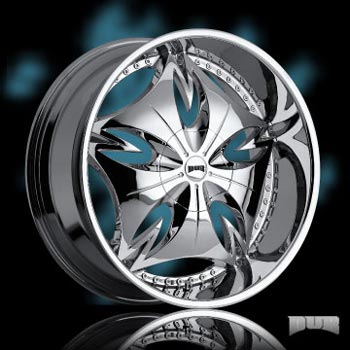First They Came For The Dubs
According to SEMA, legislation has been introduced in the Oregon House of Representatives at the request of Governor Ted Kulongoski to ban aftermarket parts if alternatives are available that “decrease greenhouse gas emissions from motor vehicles.” In reality, Oregon H.B. 2186 (pdf) merely states that the “Environmental Quality Commission may adopt by rule the following to help this state achieve the greenhouse gas emissions reduction goals.” The specific option that SEMA is steamed about states that “Restrictions and prohibitions on the sale and distribution of after-market motor vehicle parts, including but not limited to tires, if alternatives are available that decrease greenhouse gas emissions from motor vehicles,” may be enacted.
For some perspective though, the bill would also empower the EQC to enact “restrictions and prohibitions on the use of substances that contain, release or cause to be released greenhouse gases, if alternatives are available.” In other words, anything is possible, but I don’t see green-clad thugs locking folks up for selling Flowmasters anytime soon. Or maybe I really do just hate the aftermarket. Either way, between this, Governor Kulongoski’s pay-per-mile scheme and our beefed-up speeding laws, car lovers are beginning to hate Oregon. Which means our great driving roads will be less crowded for me. Or something.
More by Edward Niedermeyer


































Comments
Join the conversation
As an owner of a Chrysler 300 on 22's and S550 on 20's... I SAY NAY this is ridiculous. Many companies such as GM and Ford are making their cars with OEM 20's and 22's. Is a cop really ready to make those observations on the spot? And since when the fuck did OREGON have greenhouse gas emmission problems?
Flashpoint: Since all those coal emissions blow across the ocean from China and ruin their air quality. /end totally unresearched probably false reasoning.
zerofoo : 1. If the tire/wheel assembly does not change circumference it will not reduce fuel consumption. 2. In all likelihood larger heavier wheels will increase the rotational mass of the drivetrain. Thus to achieve the same rate of acceleration possible with lighter wheels/tires more energy is required meaning more fuel needs to be burned... worse fuel consumption.
The evidence that glacer melt was being driven by Volcanic activity is so convincing that even the NYT had to report it. Perhaps banning the incremental heat generated from the aftermarket wheel casting will be the fallback position after this CO2 panic runs its course.